Game Lab Experience
Summer 2015
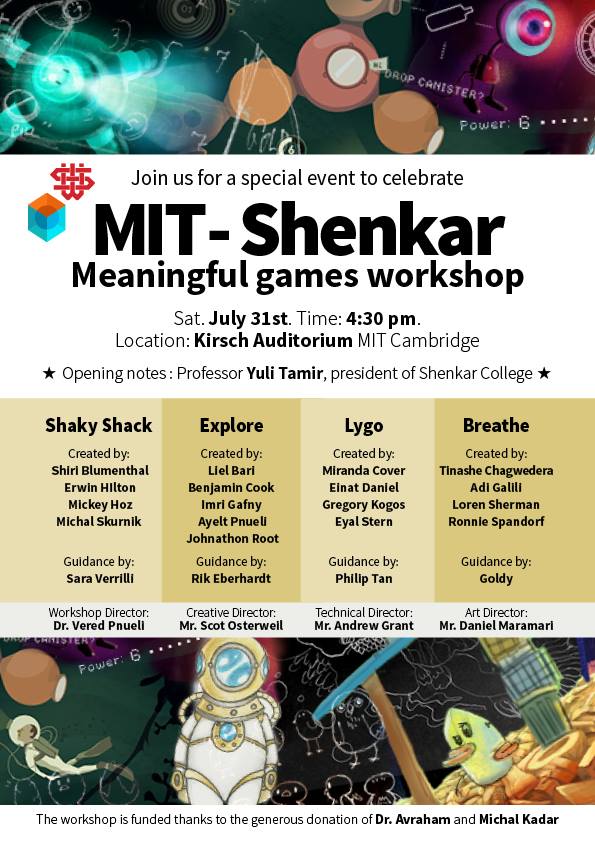
Starting in May of 2015, I worked as a UROP (undergraduate researcher) with the MIT Game Lab to help set up and participate in the MIT-Shenkar Summer Meaningful Games Development Workshop. Before the workshop my responsibilities included testing activities, setting up facilities, and learning the necessary software.
Once the workshop began, we were split into teams and started paper prototyping ideas. We had 6 weeks to design and implement our game. Our team mentor decided on the theme of home. My team had four people and we made a game which focused on the ideas of leaving home and then returning to your home. The game my team made was called Lygo, which you can play here. My responsibilities on this team included project management tasks, programming in C# for Unity, code documentation, and some art tasks.
Fall 2015-Spring 2016
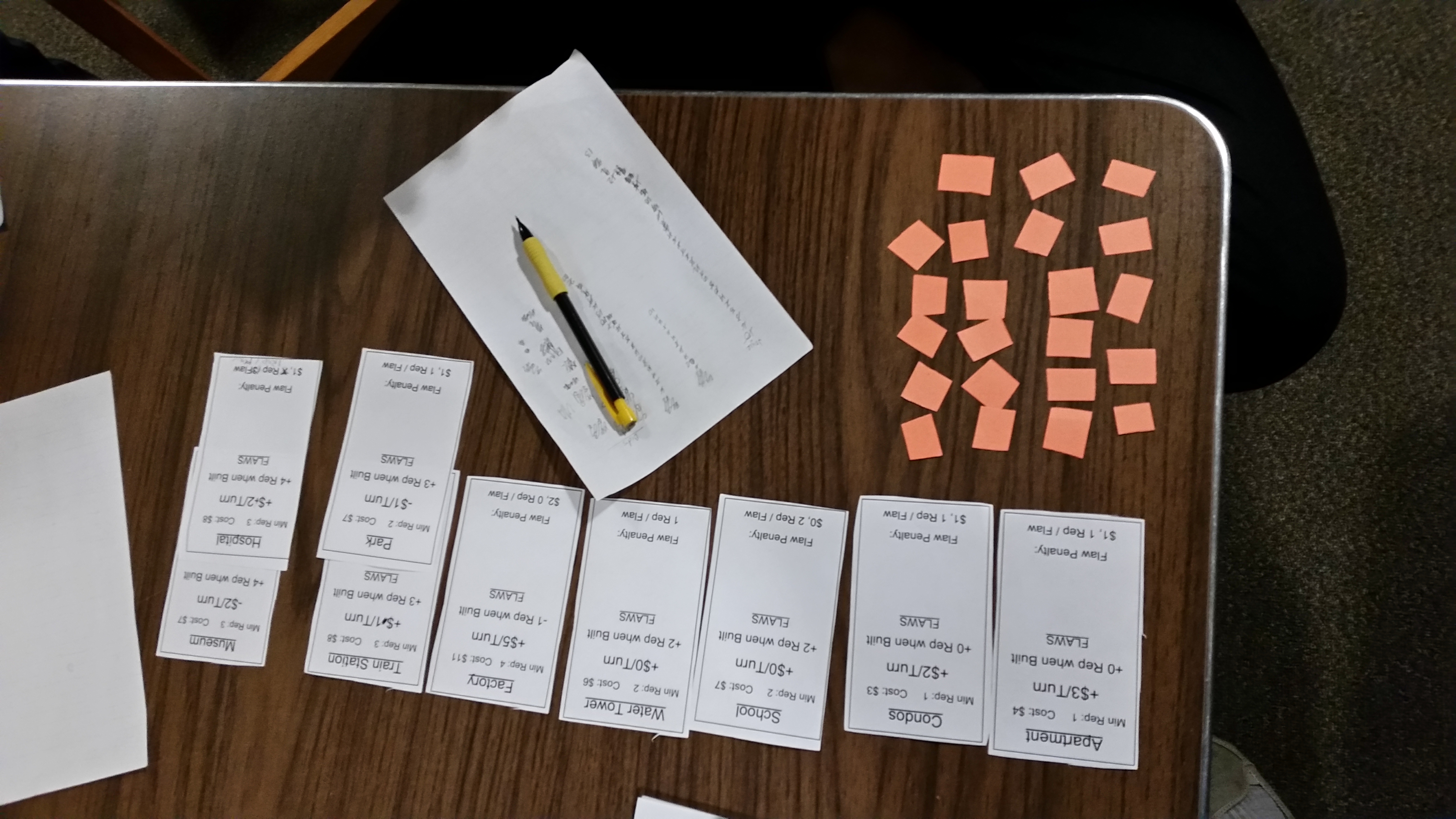
Paper Prototype
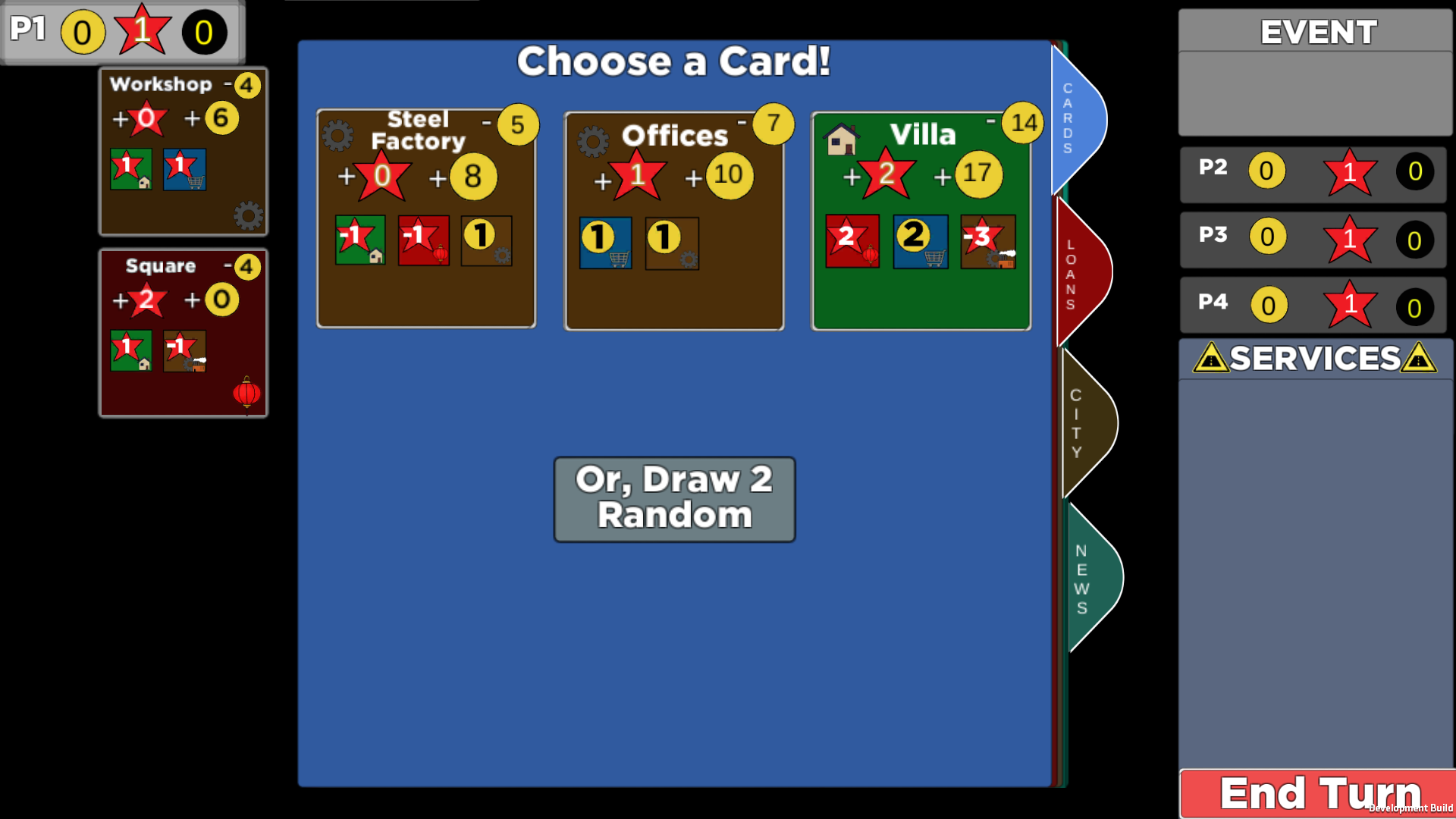
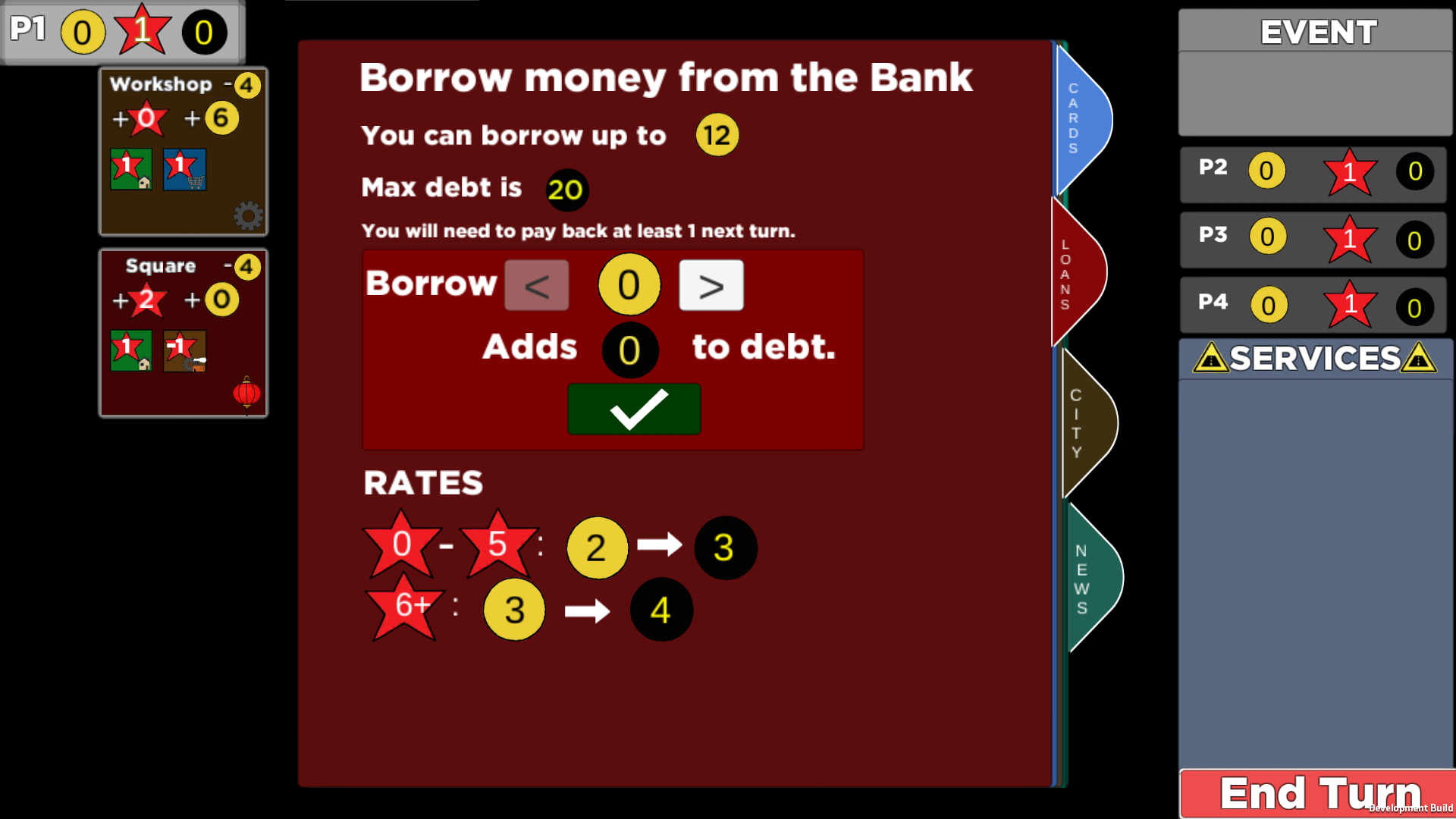
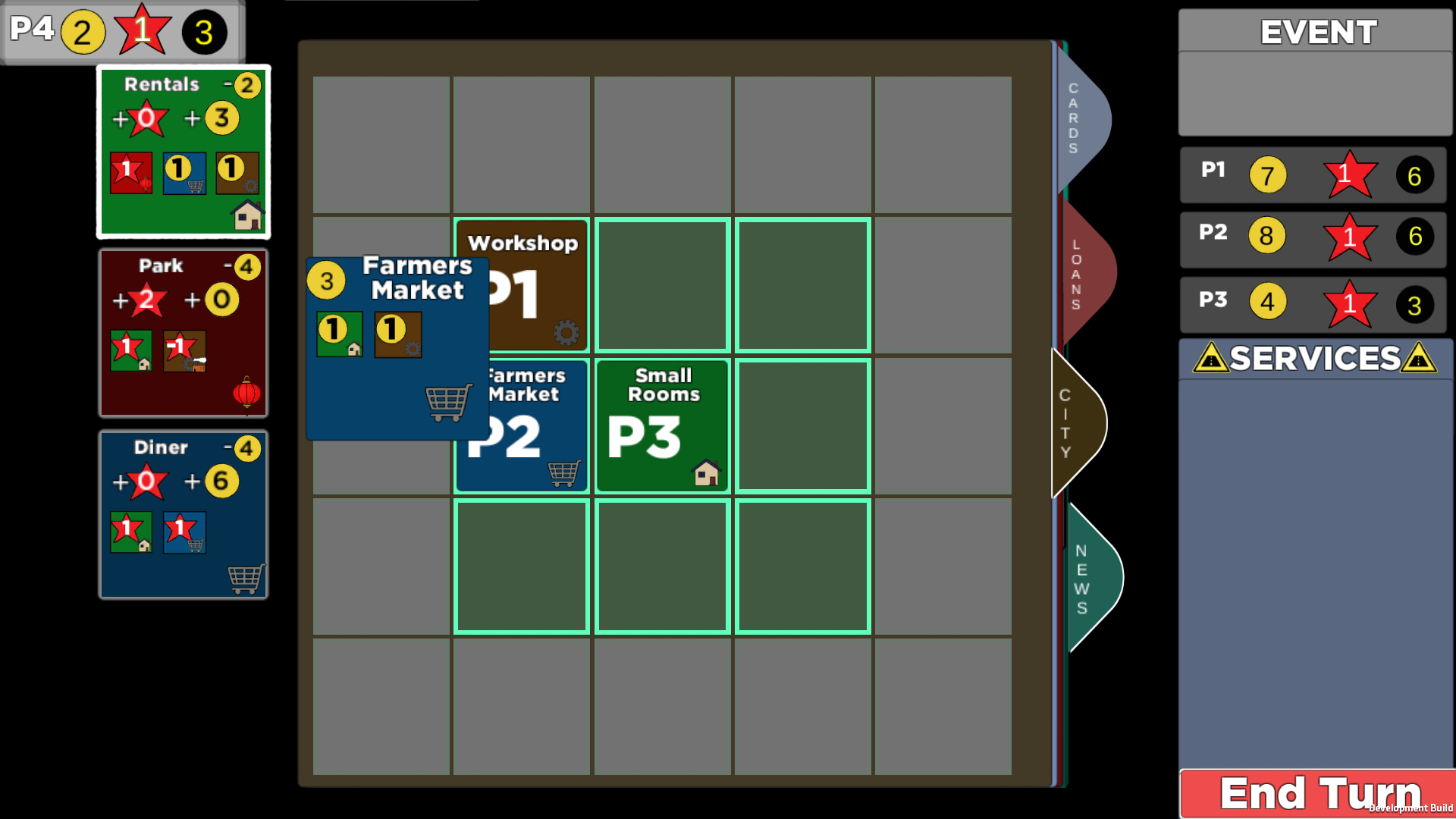
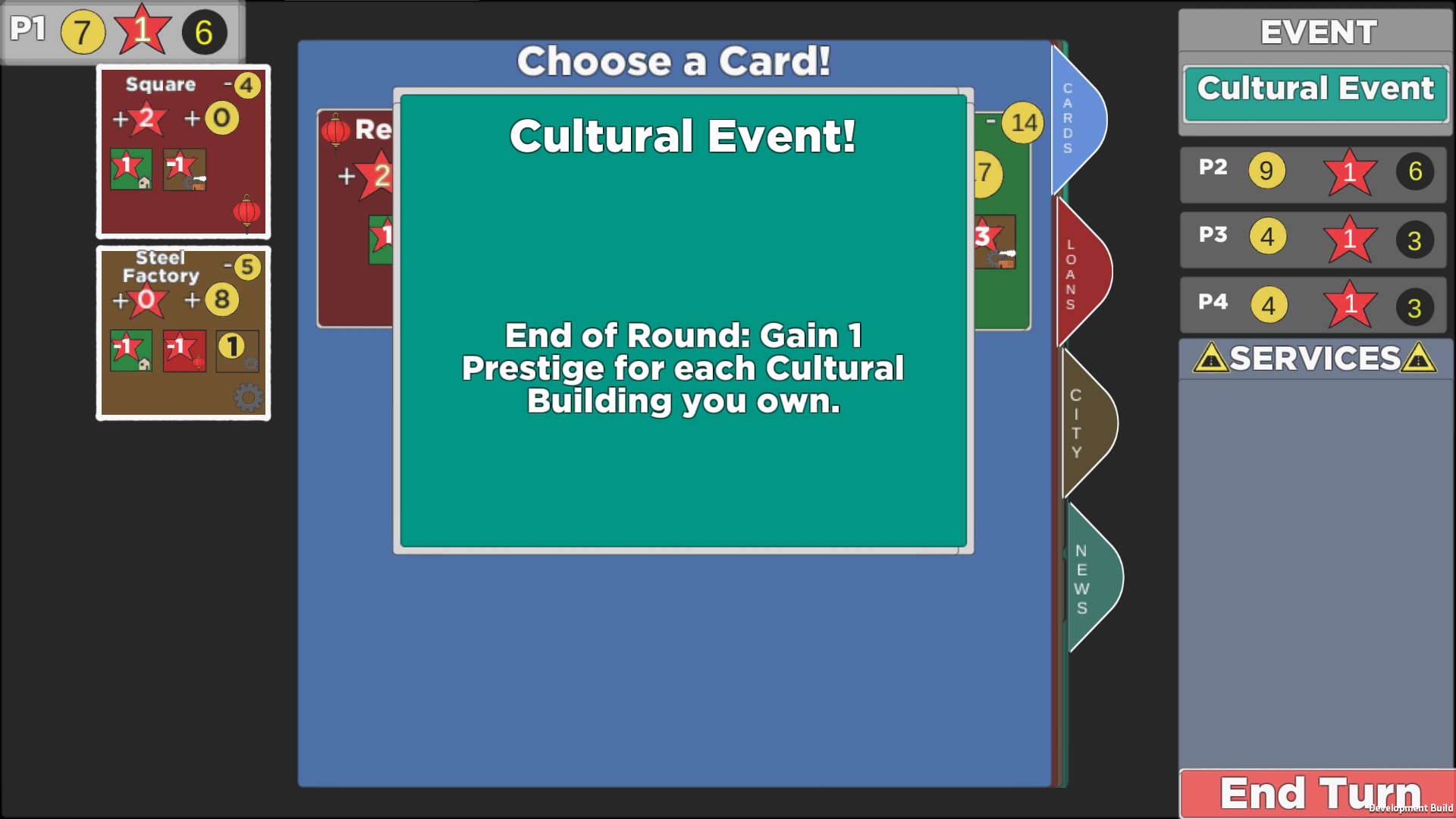
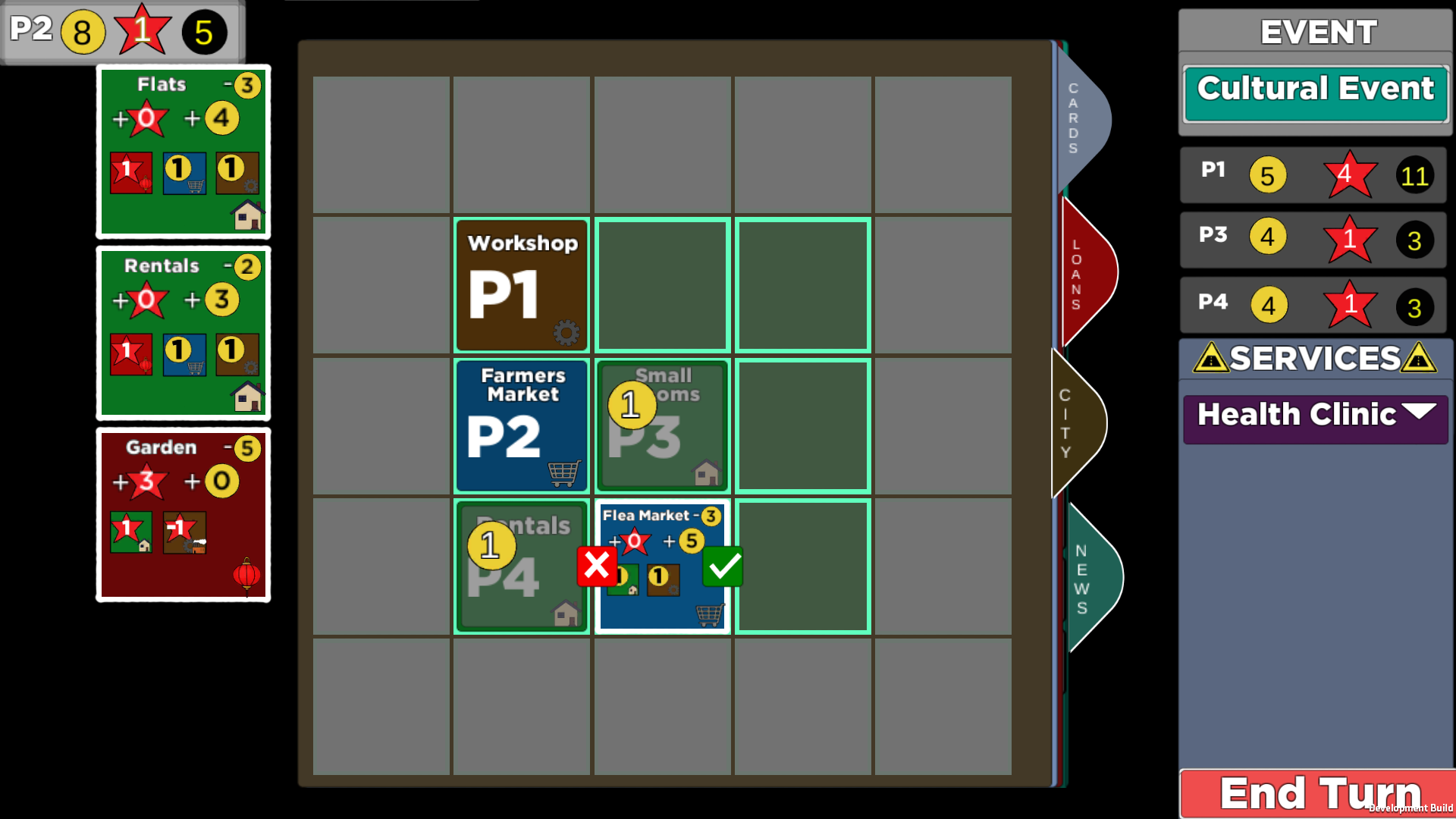
I started working with the MIT Game Lab on a game at the beginning of the Fall semester. I worked on a team with three other Undergraduate students and members of the MIT Game Lab staff.
We started by paper prototyping, coming up with new ideas to play each week, until December when we worked on polishing the idea that we, and our client, liked the most. Over the January term, we worked on taking that version of the game and making a playable digital prototype. I was the artist on this game, though my responsibilities also included programming and general game testing and debugging. We continued this project through the spring semester to get a playable game for the summer program.
The game was a card based building game. The goal was to have the most "prestige" by the end of the game. You could gain and lose prestige by your building choices, while balancing your debt and cash flow. When you play a building, there are bonuses or penalties based on what buildings are in the surrounding squares. This game was meant to start conversations about the Real Estate development industry in China.
This game was intended for Chinese students who don't know much English, if any, so the goal was to represent as much of the information symbolically as possible. We wanted to minimize the amount of text in game that needed to be translated while still preserving the message. The game was a part of a program that was run at multiple colleges in China in Summer 2016.
The game lab continued development on this project. The screen shots are from an early prototype.
